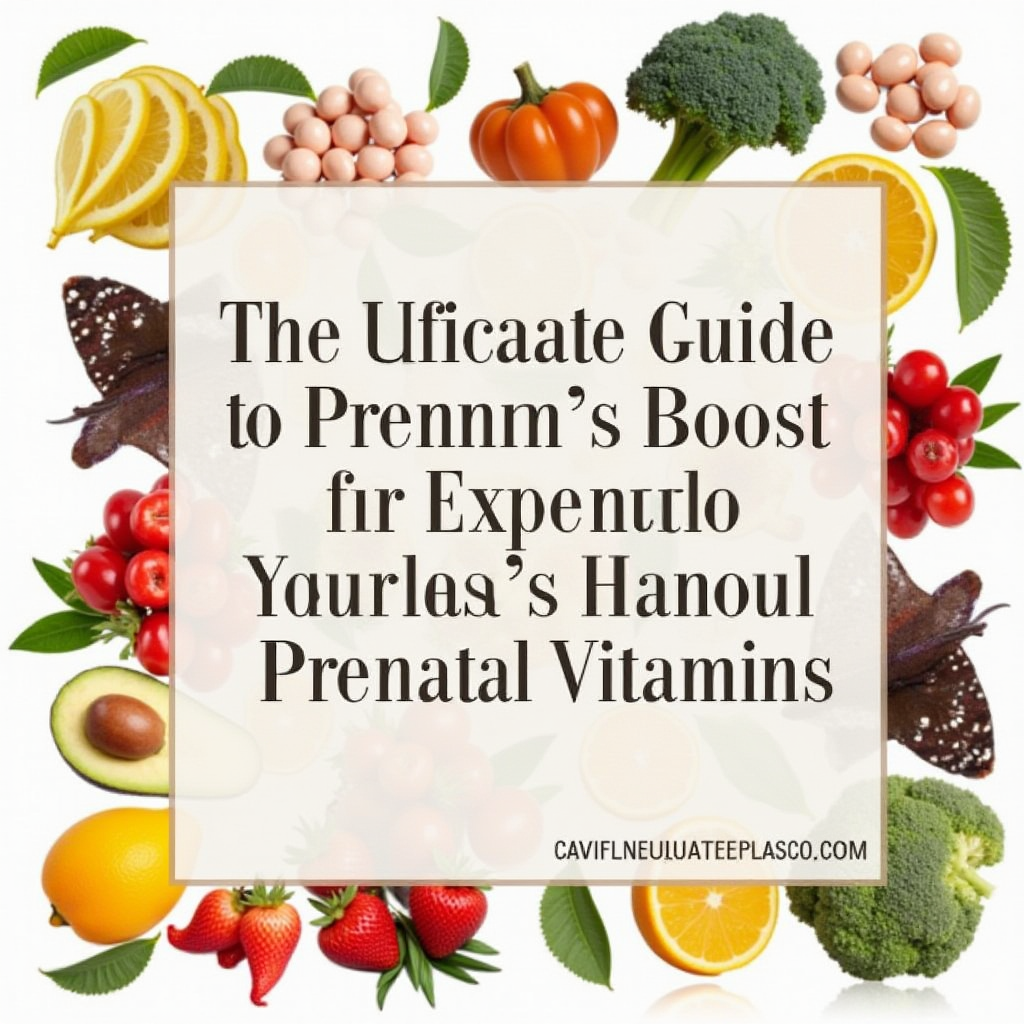The Ultimate Guide to Prenatal Vitamins

During pregnancy, your body undergoes a myriad of changes, requiring an increased intake of vitamins and minerals to support both the mother’s health and the baby’s development. While it’s ideal to obtain these nutrients from a well-balanced diet, prenatal vitamins serve as a reliable supplement to ensure you are meeting all nutritional needs. This comprehensive guide will delve into the world of prenatal vitamins, exploring their benefits, what to look for, when to start taking them, potential concerns, and additional practices to support your pregnancy journey.
Why Are Prenatal Vitamins Important?
Pregnancy is a time of significant growth and change. It demands extra nutrients that might be challenging to get solely from diet alone. “A well-rounded balance of vitamins and nutrients during pregnancy will help the mother provide all the necessary elements for the baby’s development, such as forming vital organs and body systems,” notes Dr. Ryalynn Morgan Carter, an OB-GYN expert at Columbia University Irving Medical Center.
Prenatal vitamins are specifically formulated to address the nutritional requirements of pregnant women, ensuring they receive essential nutrients like folic acid, iron, calcium, vitamin D, choline, omega-3 fatty acids, and B vitamins. These compounds play pivotal roles in preventing birth defects, supporting bone health, aiding in brain development, and much more.
Key Nutrients in Prenatal Vitamins
- Folic Acid: Crucial for early pregnancy neural tube development, recommended at 600 micrograms daily.
- Iron: Supports the formation of additional red blood cells; pregnant women need about 27 milligrams a day.
- Calcium and Vitamin D: Important for bone health and reducing risks like pre-eclampsia. Calcium is recommended at 1,000 mg daily.
- Choline: Supports brain development; the ACOG suggests 450 mg per day during pregnancy.
- Omega-3 Fatty Acids: Essential for fetal brain and eye development. Found in foods like wild salmon, mackerel, and flax seeds.
- B Vitamins: Vital for cellular growth and immune support. Vitamin B6 can alleviate nausea.
When to Start Taking Prenatal Vitamins?
The general advice is to start prenatal vitamins as early as possible, ideally before conception. “Prenatal vitamins are best taken preconception to be on board for critical changes early in pregnancy,” explains Dr. Jessica Shepherd, an OB-GYN based in Dallas.
For those planning to conceive soon, starting a multivitamin several months ahead can ensure the body has adequate nutrient stores at conception and throughout early pregnancy when organ development begins.
Potential Concerns with Prenatal Vitamins
While prenatal vitamins are essential, it’s important to use them wisely. “It is possible to have too much of a good thing,” cautions Dr. Shepherd. Excessive intake of certain nutrients can be harmful. Therefore, purchasing supplements from reputable sources and consulting your doctor before starting any new supplement regimen is crucial.
Additionally, the prenatal vitamin industry is not heavily regulated, which means some products may contain fillers or impurities. Always opt for well-reviewed brands known for their quality control processes.
Complementary Practices During Pregnancy
In addition to taking prenatal vitamins, maintaining a healthy lifestyle is vital during pregnancy:
- Nutritious Diet: Prioritize whole foods rich in antioxidants and phytochemicals. Incorporate a variety of vegetables, fruits, proteins, and grains.
- Blood Sugar Management: Keep blood sugar levels stable by consuming adequate protein at meals to help manage nausea and maintain energy levels.
- Regular Exercise: Engage in safe activities like walking, prenatal yoga, or low-impact strength training to promote cardiovascular health and prepare your body for labor.
- Rest and Stress Management: Ensure you get enough sleep and employ stress-relief techniques such as meditation or deep-breathing exercises. High stress levels can impact both maternal and fetal well-being.
Prenatal vitamins are an integral component of a healthy pregnancy, but they should be part of a holistic approach to prenatal care. Consult with your healthcare provider for personalized advice tailored to your specific health needs during this transformative time in your life.
Conclusion
The journey through pregnancy is unique and requires special attention to both diet and supplementation. By understanding the critical role that prenatal vitamins play, starting them at the right time, choosing high-quality products, and incorporating healthy lifestyle practices, you can support a healthy pregnancy for both you and your baby.
Remember, while prenatal vitamins are beneficial, they complement rather than replace a balanced diet and overall wellness strategy. Always seek guidance from your healthcare provider to create a plan that best suits your individual needs during this special time.